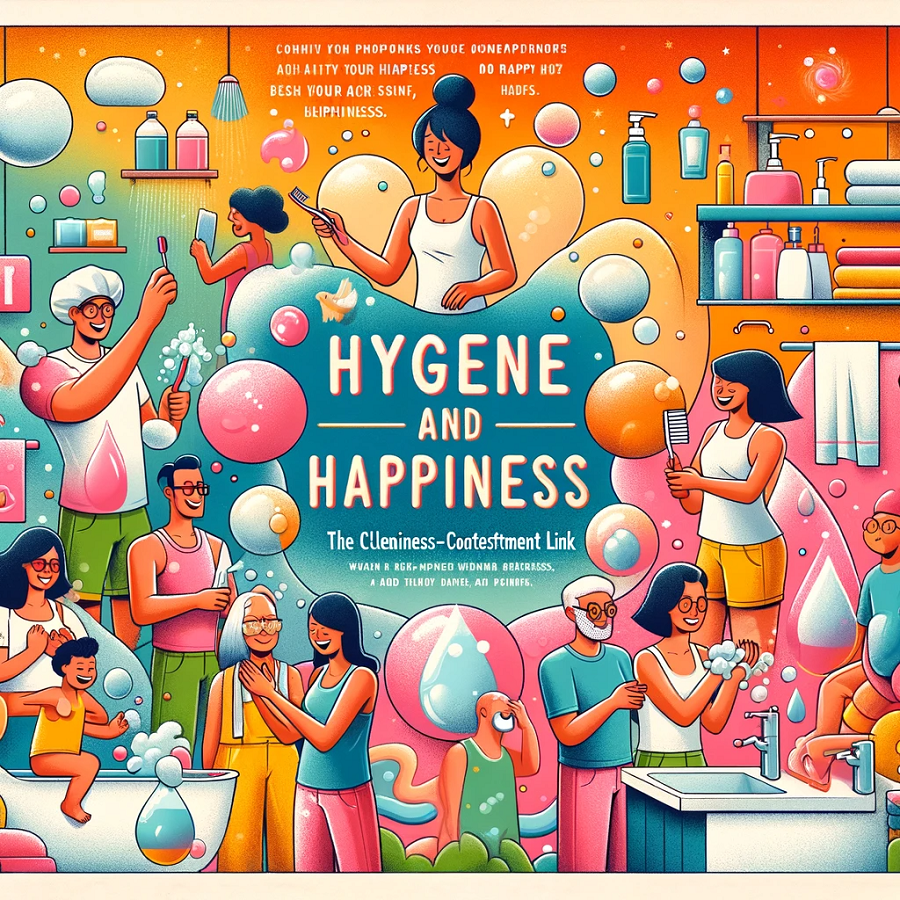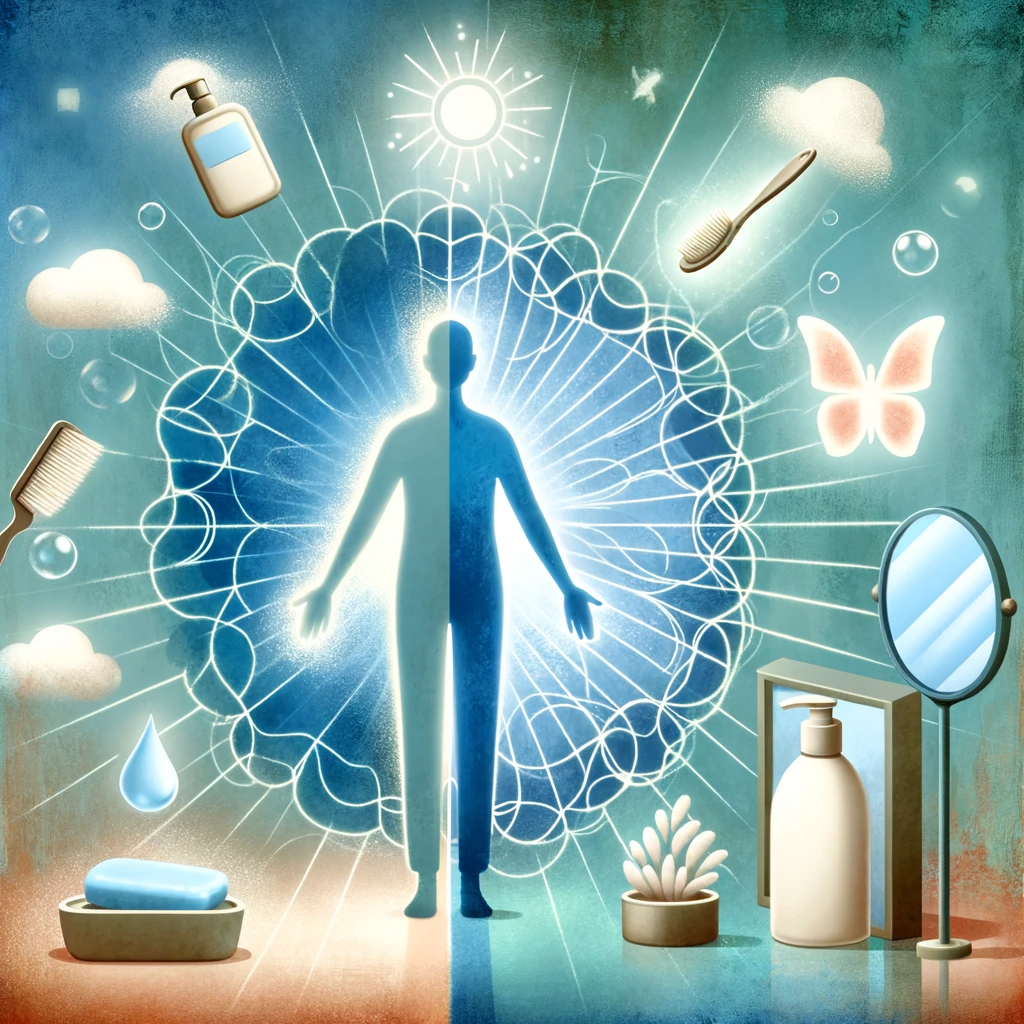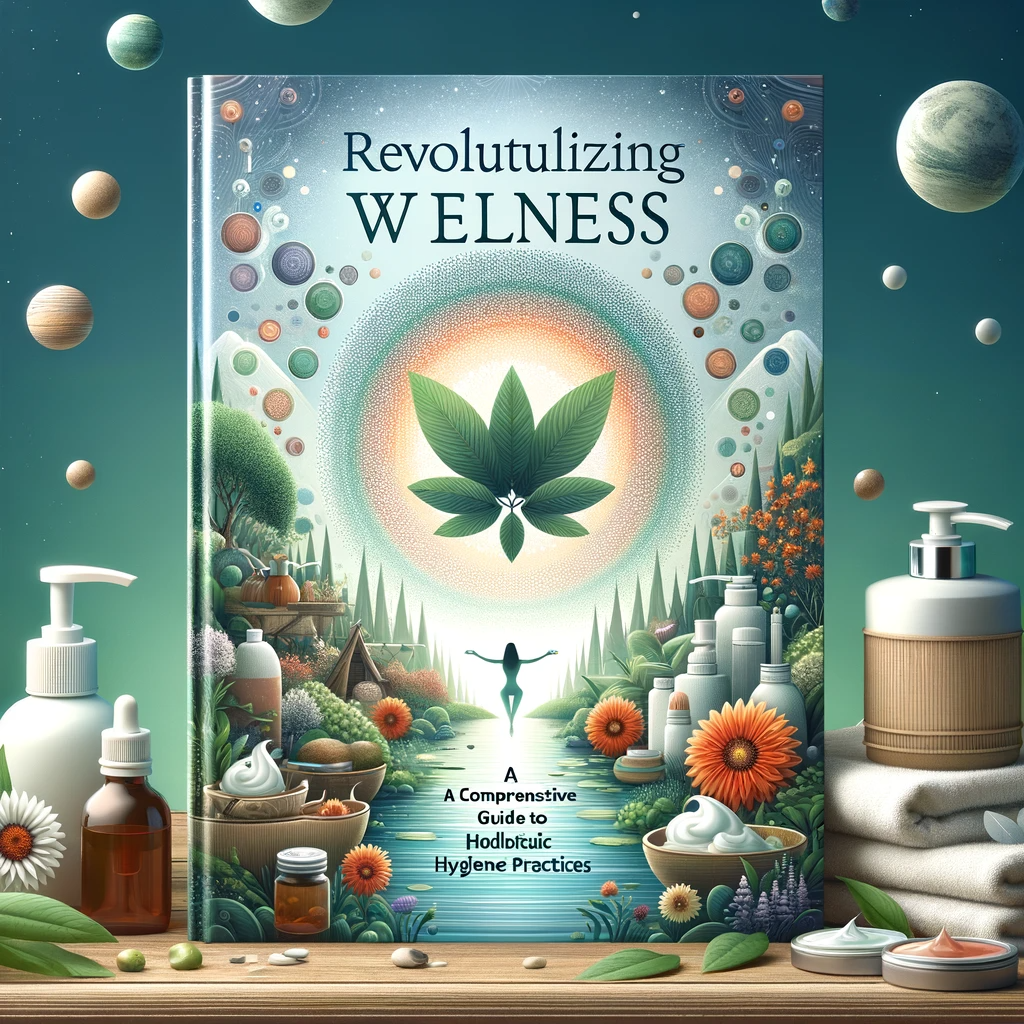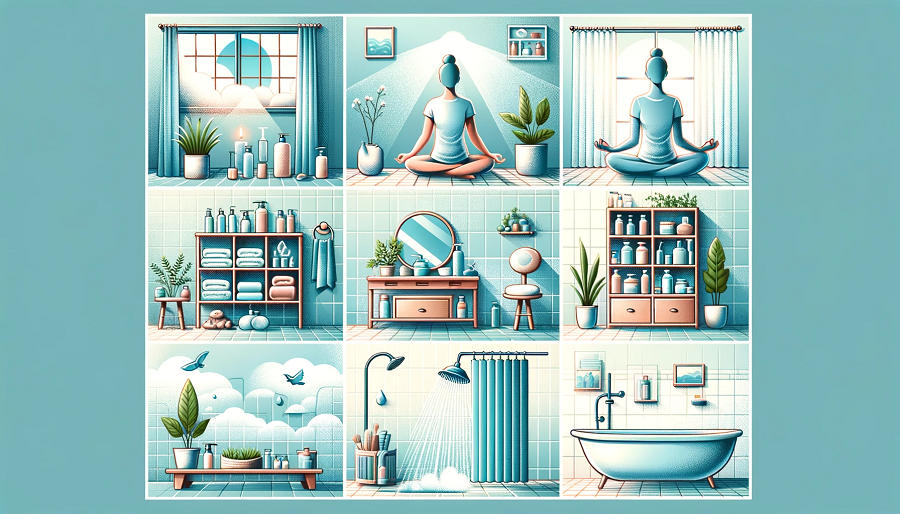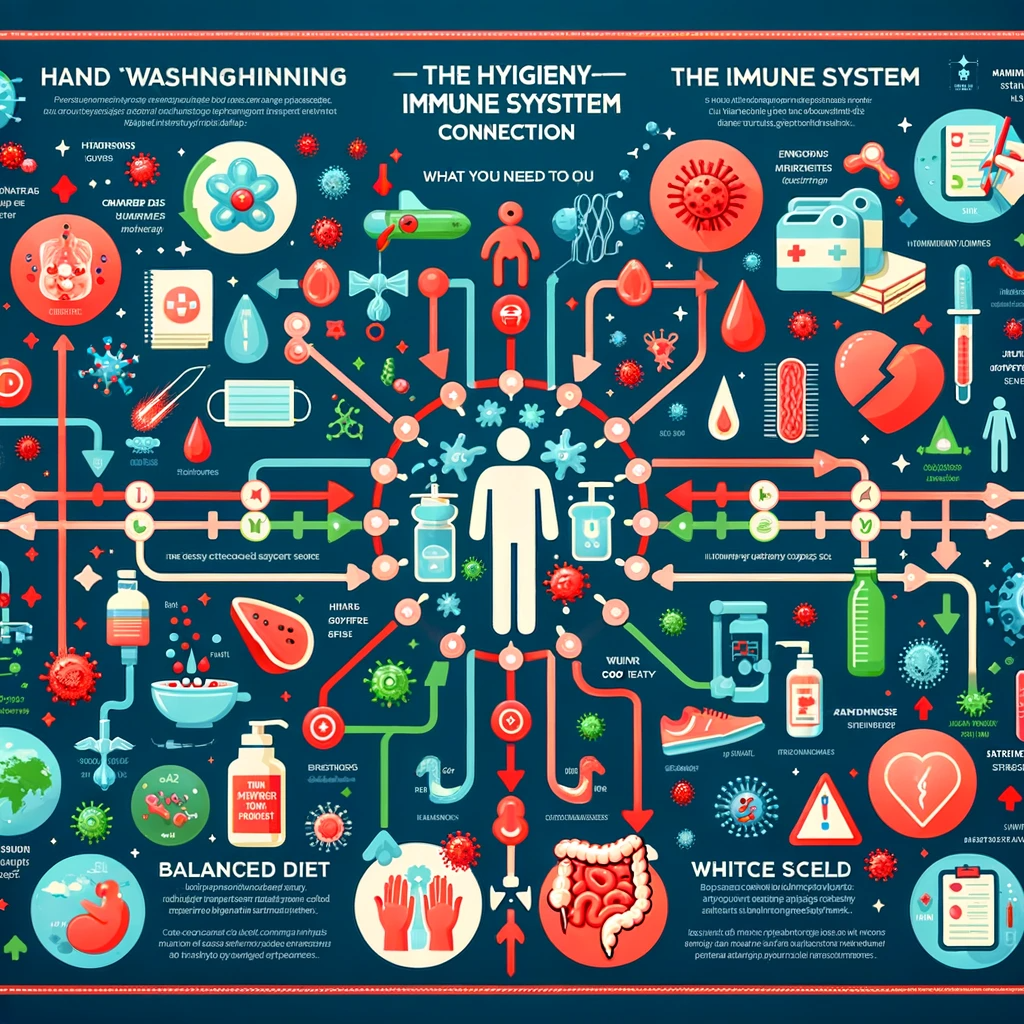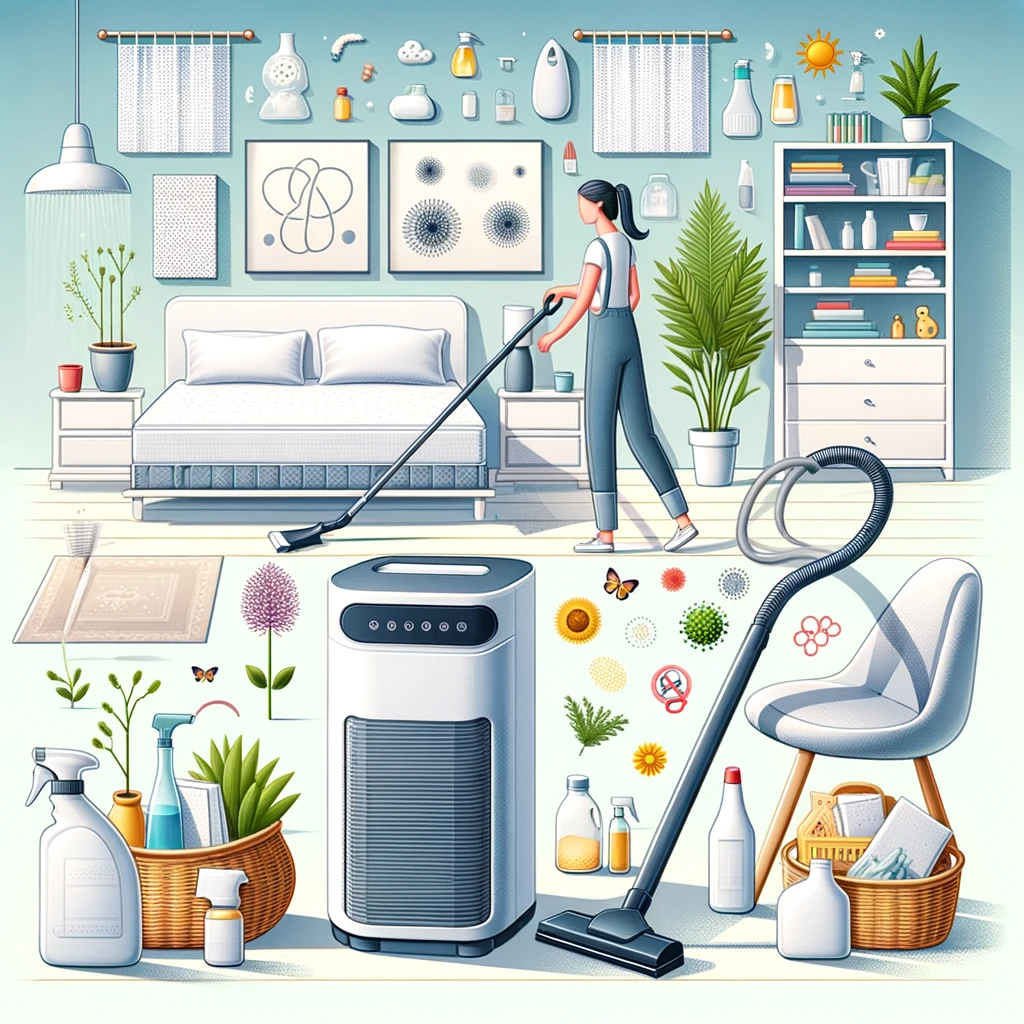In the hustle and bustle of our daily lives, we often search for happiness in the grand moments, the extraordinary achievements, and the profound experiences. Yet, there exists an intricate and often overlooked connection between our daily routines, cleanliness, and the profound sense of contentment we all seek. This article explores the fascinating interplay between hygiene and happiness, delving into the science that underpins it, offering practical tips to elevate personal hygiene, creating harmonious and joyful living environments, and strengthening the bonds we share with others. From the basics of personal cleanliness to the profound impact on our mental well-being, we’ll embark on a journey to understand how these seemingly simple practices can have a profound influence on our overall sense of well-being, and how they collectively contribute to a life filled with contentment and happiness. So, let’s unravel the intricacies of the hygiene and happiness connection and discover how it can transform our lives for the better.
The Hygiene and Happiness Connection
The link between hygiene and happiness is undeniable, though it might not be immediately apparent. While we often think of happiness as stemming from external factors like success, relationships, or personal achievements, the role of hygiene in our overall well-being should not be underestimated. This article explores the profound connection between hygiene and happiness, shedding light on why cleanliness can contribute significantly to our contentment in life.
The Science Behind Cleanliness and Happiness
Delving deeper into the hygiene-happiness connection, it becomes evident that there’s solid scientific backing to this phenomenon. Let’s break down the science behind cleanliness and happiness:
When we prioritize personal hygiene, our bodies respond positively. Regular practices like bathing, brushing teeth, and washing hands help our bodies produce endorphins, those wonderful “feel-good” hormones. These endorphins play a significant role in reducing stress, alleviating anxiety, and promoting a general sense of well-being.
Furthermore, good hygiene practices contribute to a boosted immune system. By preventing illness and infections, we’re more likely to feel energetic and content. A healthy body is often a happy one.
Lastly, personal hygiene isn’t just about the physical; it’s also closely tied to self-esteem. Feeling clean and presentable enhances our self-image, which can lead to increased self-confidence and a generally more positive outlook on life.
Maintaining Personal Hygiene: The Basics
Now that we’ve established the science behind cleanliness and happiness, let’s delve into the basics of personal hygiene. It’s the foundation upon which a happier life can be built. Here are some fundamental practices to get you started:
- Regular Bathing: Showering or bathing daily helps remove sweat, dirt, and bacteria from your skin, leaving you feeling fresh and invigorated.
- Oral Hygiene: Brush your teeth at least twice a day, using fluoride toothpaste, to maintain fresh breath and a healthy smile.
- Handwashing: Washing your hands thoroughly, especially before meals and after using the restroom, is crucial to prevent the spread of germs.
- Clothing Hygiene: Changing your clothes daily and laundering them regularly helps you avoid body odors and skin irritations.
The Impact of Clean Living Spaces
Now that we’ve addressed personal hygiene, it’s time to turn our attention to the cleanliness of our living spaces. The state of your home can significantly impact your overall happiness, and here’s how:
- Reduced Stress: A clutter-free and tidy living space can work wonders for reducing stress. When your environment is organized, it can promote a sense of calm and relaxation.
- Healthy Living: Regularly cleaning your home serves a dual purpose. It helps eliminate allergens and pollutants, thus improving indoor air quality and overall health. Breathing fresh air can contribute to a happier state of mind.
- Productivity Boost: A clean workspace, whether at home or in the office, enhances your ability to focus and be productive. Completing tasks in a clean and orderly environment can lead to a sense of accomplishment and satisfaction, positively influencing your mood.
Hygiene and Mental Health: A Deeper Dive
Beyond the physical aspects, hygiene plays a profound role in our mental health. Poor hygiene practices can lead to various mental health issues, such as depression and social anxiety. Conversely, embracing good hygiene can offer several mental health benefits:
- Boosted Confidence: Feeling clean and fresh can significantly boost self-confidence. When you’re confident in your appearance, it becomes easier to socialize, engage with others, and tackle life’s challenges head-on.
- Reduced Anxiety: Good hygiene practices can help reduce anxiety related to body odor, appearance, or the discomfort of feeling unclean in social situations. When you’re comfortable in your own skin, social interactions become less daunting.
- Improved Self-Care: Establishing and maintaining hygiene routines instills a sense of self-worth and responsibility. These are essential components of good mental health, as they encourage self-care and self-compassion.
Tips for Improving Personal Hygiene
Improving your personal hygiene doesn’t need to be a daunting task. Here are some practical tips to help you elevate your personal hygiene game:
- Establish a Routine: Create a daily hygiene routine that includes showering, brushing your teeth, and other essential tasks. Consistency is key to maintaining good personal hygiene.
- Use Quality Products: Invest in quality hygiene products that suit your skin type and personal preferences. Choosing the right products can make a significant difference in your overall cleanliness and comfort.
- Stay Hydrated: Drinking plenty of water is crucial for skin health. Hydration helps maintain the natural moisture balance of your skin, keeping it healthy and glowing.
- Mind Your Diet: Your diet can also impact your personal hygiene. Consuming a balanced diet rich in fruits and vegetables can contribute to better overall health and can even affect the way you smell.
Creating a Clean and Happy Home Environment
A clean living space significantly influences your overall happiness. Here are some practical tips for creating a clean and happy home environment:
- Declutter Regularly: Clear out items you no longer need to create more space and reduce stress. A clutter-free environment promotes mental clarity and peace.
- Set Cleaning Schedules: Establish a cleaning routine to keep your home consistently tidy. Regular maintenance prevents the accumulation of dirt and dust, ensuring a healthier and happier living space.
- Personalize Your Space: Decorate your home with items that bring you joy and create a positive atmosphere. Personal touches make your living space uniquely yours and can enhance your sense of contentment.
Hygiene and Relationships: Building Stronger Bonds
Good hygiene extends beyond personal well-being; it also has a significant impact on your relationships with others. Here’s how maintaining cleanliness can help you build stronger bonds:
- Respect for Others: Practicing good hygiene shows respect for the people around you. When you prioritize cleanliness, you make others feel more comfortable in your presence, strengthening your relationships.
- Improved Communication: Feeling clean and confident can enhance your communication skills. When you feel good about yourself, you’re more likely to engage positively with others, fostering better connections.
- Enhanced Intimacy: Good personal hygiene is essential for intimate relationships. It promotes comfort and connection, ensuring that physical intimacy is a positive and enjoyable experience for both partners.
The Role of Hygiene in Overall Well-being
Hygiene plays a multifaceted role in our lives and overall well-being. It goes far beyond maintaining a clean appearance and a tidy home. By prioritizing personal hygiene, creating a clean living environment, and understanding the impact on mental health and relationships, we can pave the way to a happier, more content life. Small changes in daily routines and living spaces can lead to significant improvements in our overall happiness and well-being. So, remember that hygiene isn’t just a chore—it’s a powerful tool for cultivating a joyful and fulfilling life.
Final Thoughts:
Our journey through the intricate connection between hygiene and happiness has revealed that maintaining personal cleanliness and cultivating clean living spaces are far more than mere daily routines. They are pathways to a brighter, more content life. We’ve explored the science behind the link, emphasizing the role of hygiene in mental well-being and relationships. We’ve also provided practical tips to enhance personal hygiene and create happier home environments. As we wrap up our exploration, remember that the pursuit of happiness need not be elusive; it can begin with something as simple as a clean slate and a fresh start each day. So, embrace the power of hygiene to uplift your spirits, boost your confidence, and foster stronger connections with those around you. Let cleanliness pave the way to a life filled with happiness and contentment.
FAQs (Frequently Asked Questions
- Why is personal hygiene important for overall well-being?
- Personal hygiene is crucial because it not only helps you maintain physical health by preventing illness and infections but also contributes to mental well-being by boosting confidence and reducing anxiety.
- What role does hygiene play in relationships?
- Good personal hygiene demonstrates respect for others, enhances communication, and fosters intimacy in relationships. It can make interactions more comfortable and enjoyable for everyone involved.
- How often should I clean my living space for optimal happiness?
- The frequency of cleaning your living space can vary depending on your preferences and lifestyle. However, regular maintenance, such as weekly cleaning, is recommended to create a harmonious and happy home environment.
- Are there any specific products or practices for improving personal hygiene?
- Personal hygiene products should be chosen based on your skin type and preferences. Practices such as daily bathing, brushing teeth twice a day, and regular handwashing are fundamental for good personal hygiene.
- Can cleanliness really impact mental health?
- Yes, it can. The link between cleanliness and mental health is supported by scientific research. Good hygiene practices can reduce anxiety, boost self-esteem, and promote a more positive outlook on life.
- How can I create a cleaner and happier home environment?
- To create a cleaner and happier home, start by decluttering regularly, setting cleaning schedules, and personalizing your space with items that bring you joy. A tidy and organized home can positively impact your mood and overall well-being.
- Is there a specific order or routine for maintaining personal hygiene?
- Establishing a daily routine for personal hygiene is beneficial. Begin with showering or bathing, followed by brushing your teeth, washing your hands regularly, and changing your clothes as needed. Consistency is key.
- Can hygiene really contribute to happiness in the long term?
- Yes, good hygiene practices can contribute to long-term happiness. By maintaining cleanliness and practicing hygiene, you’re investing in your physical and mental health, which can lead to a more content and fulfilling life over time.
- Is there a connection between hydration and personal hygiene?
- Staying hydrated is essential for maintaining healthy skin, which is a crucial aspect of personal hygiene. Drinking plenty of water can help keep your skin moisturized and glowing.
- How can I balance cleanliness with sustainability?
- You can balance cleanliness with sustainability by choosing eco-friendly cleaning products and reducing water and energy consumption during cleaning routines. Sustainable practices can help you maintain a clean and happy environment without harming the planet.

